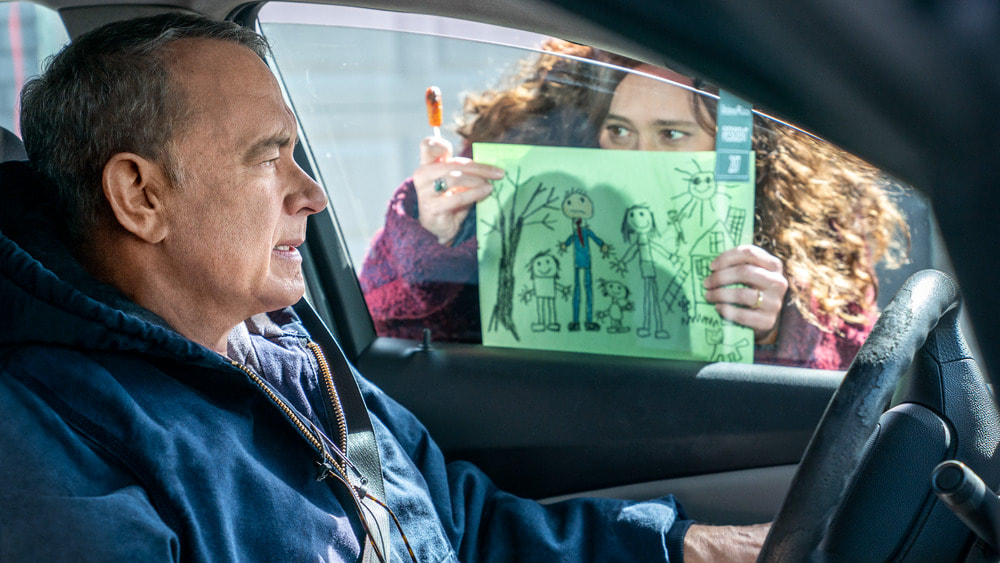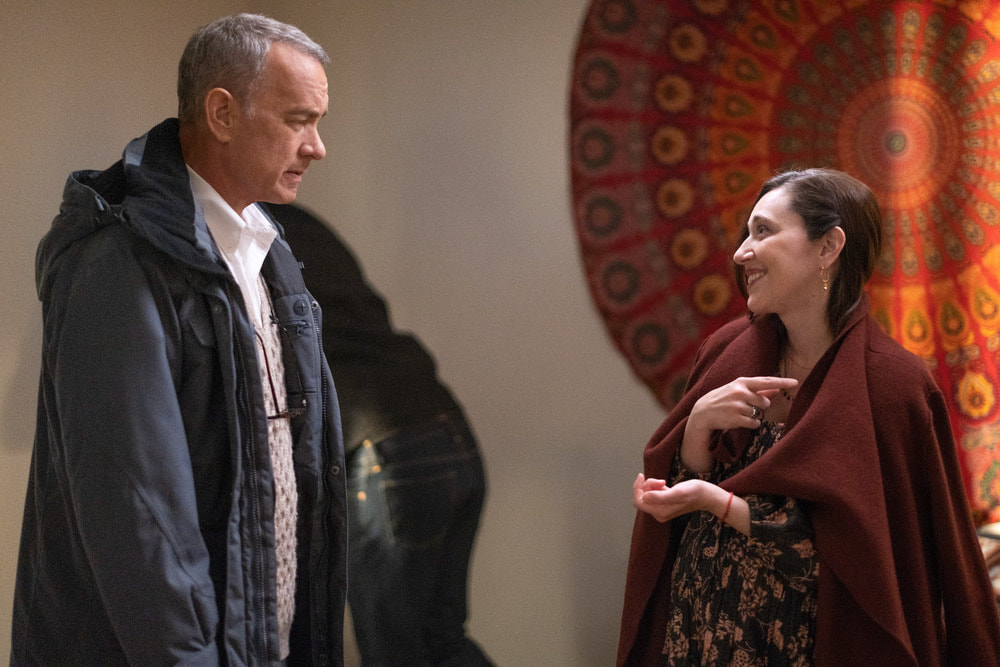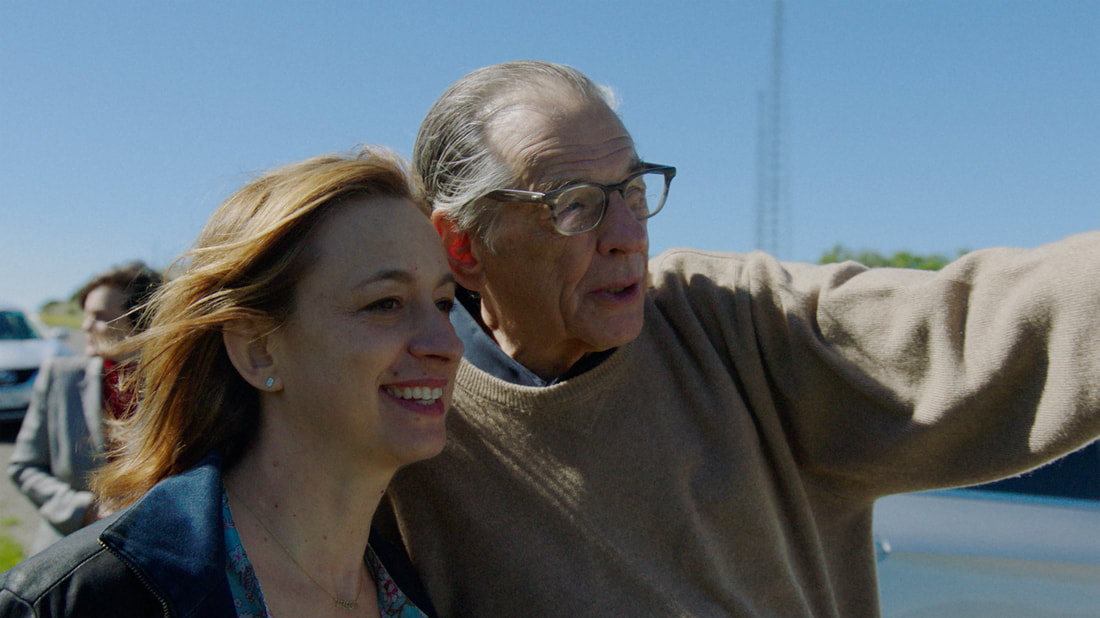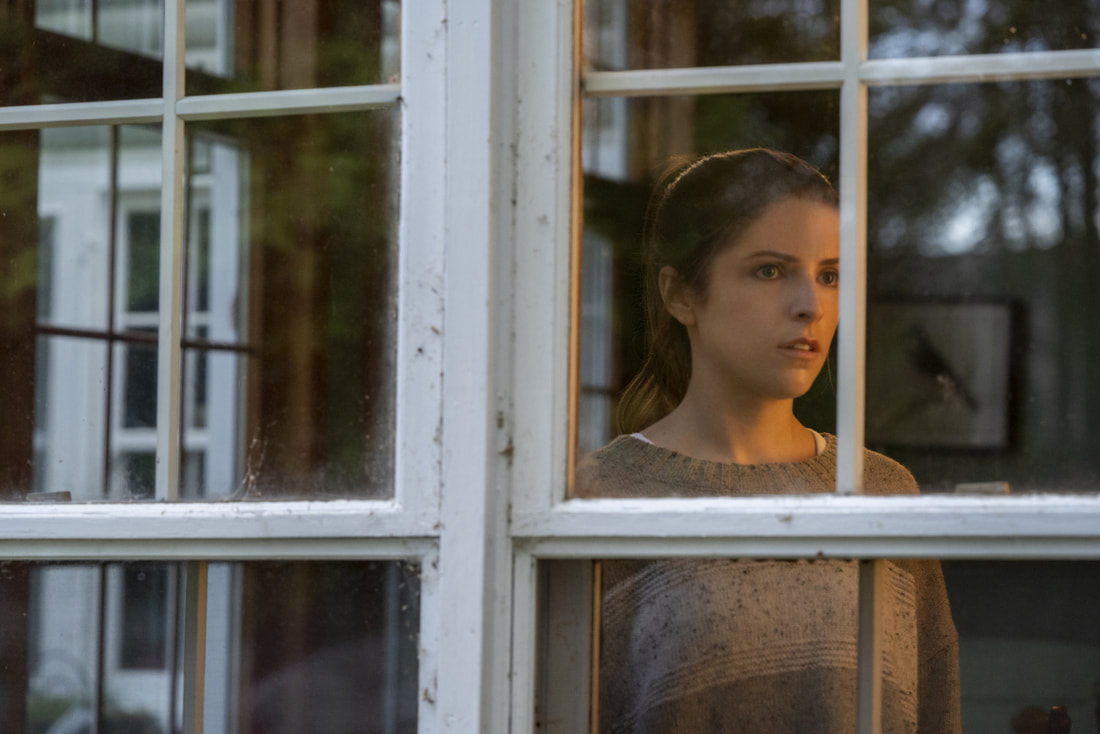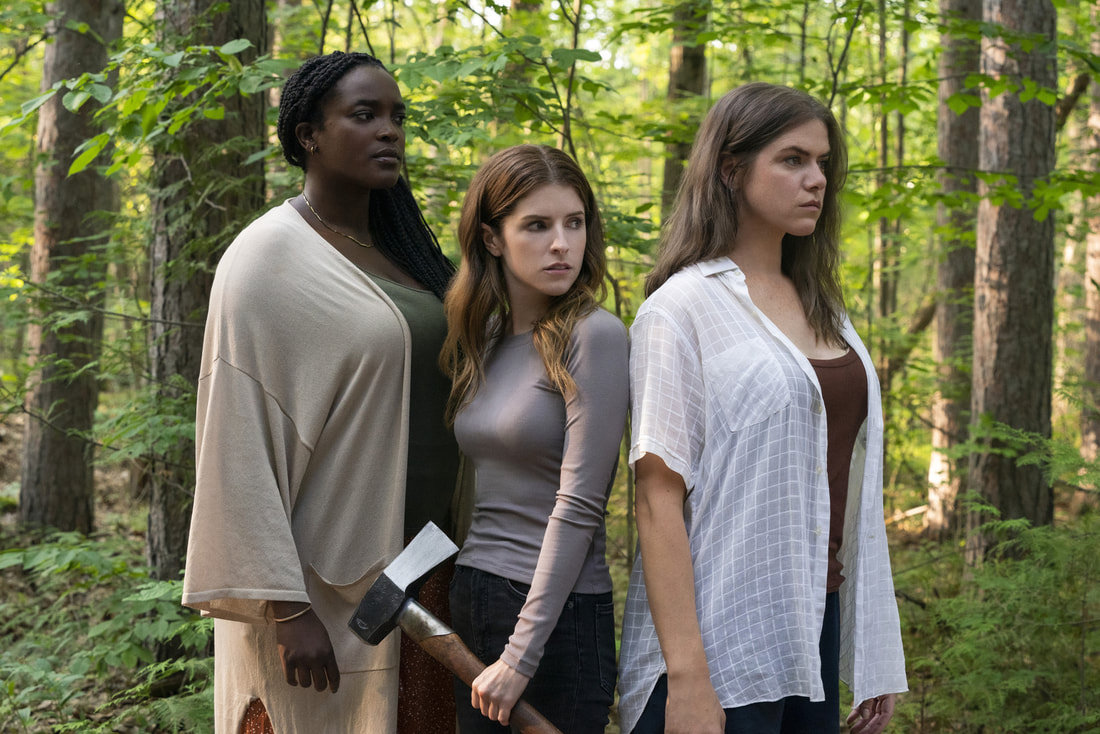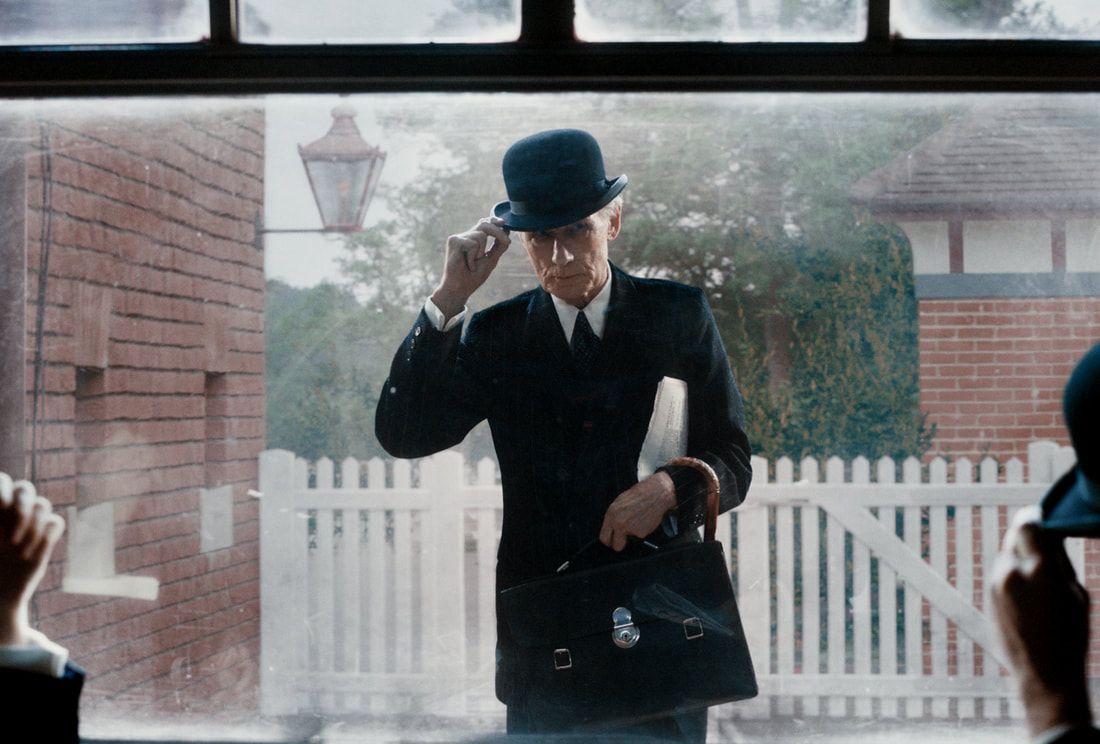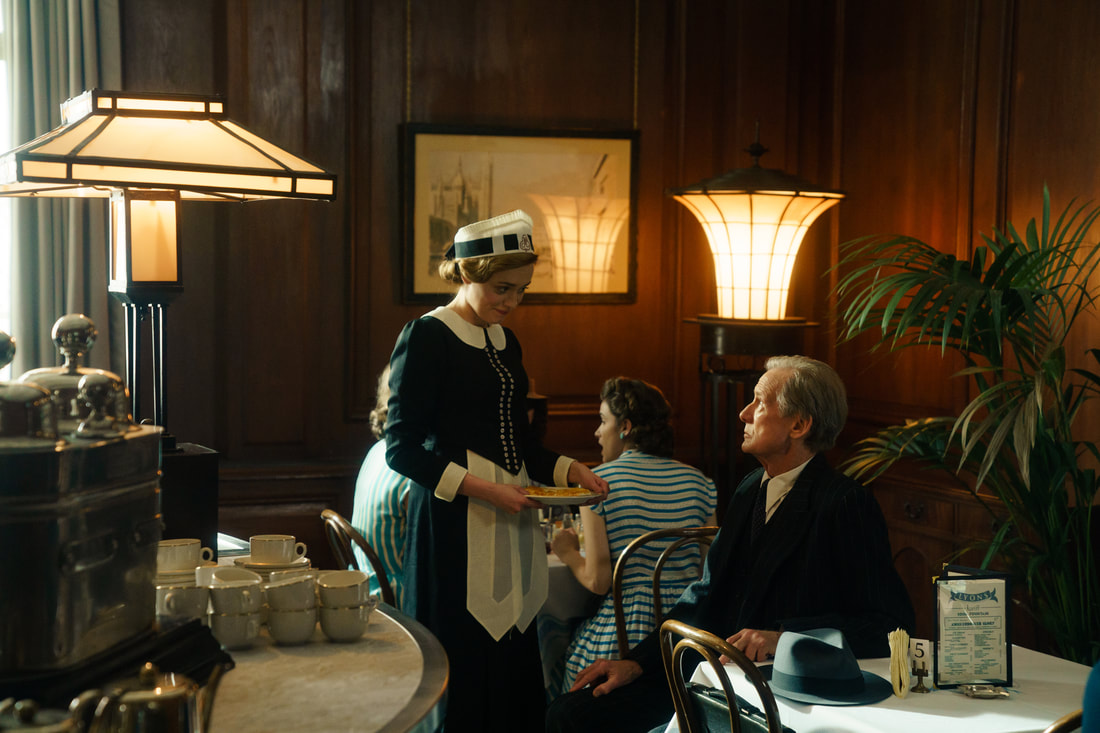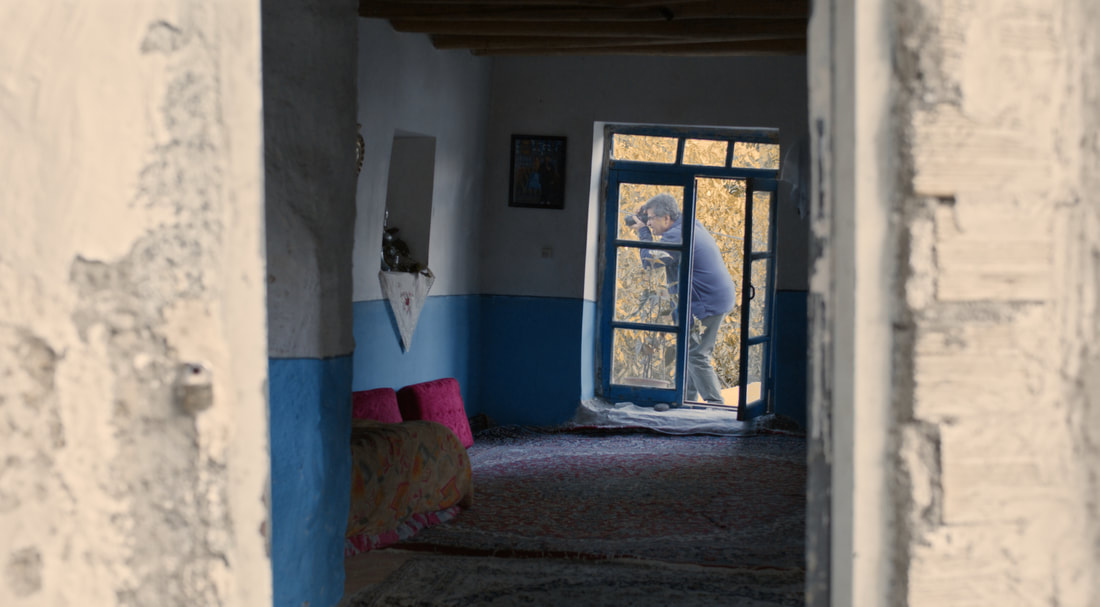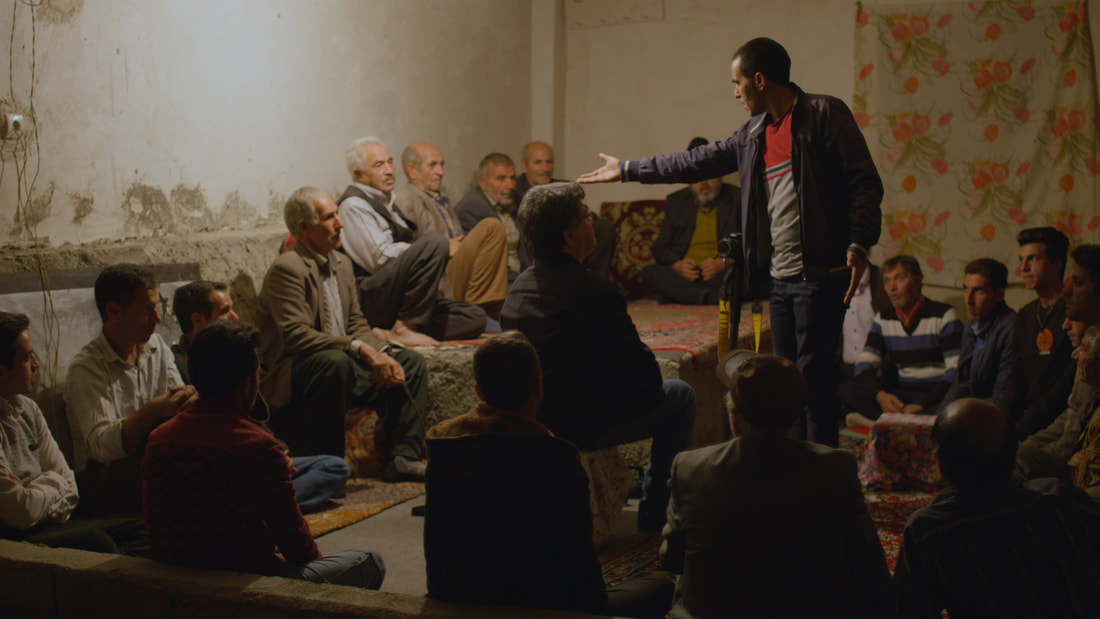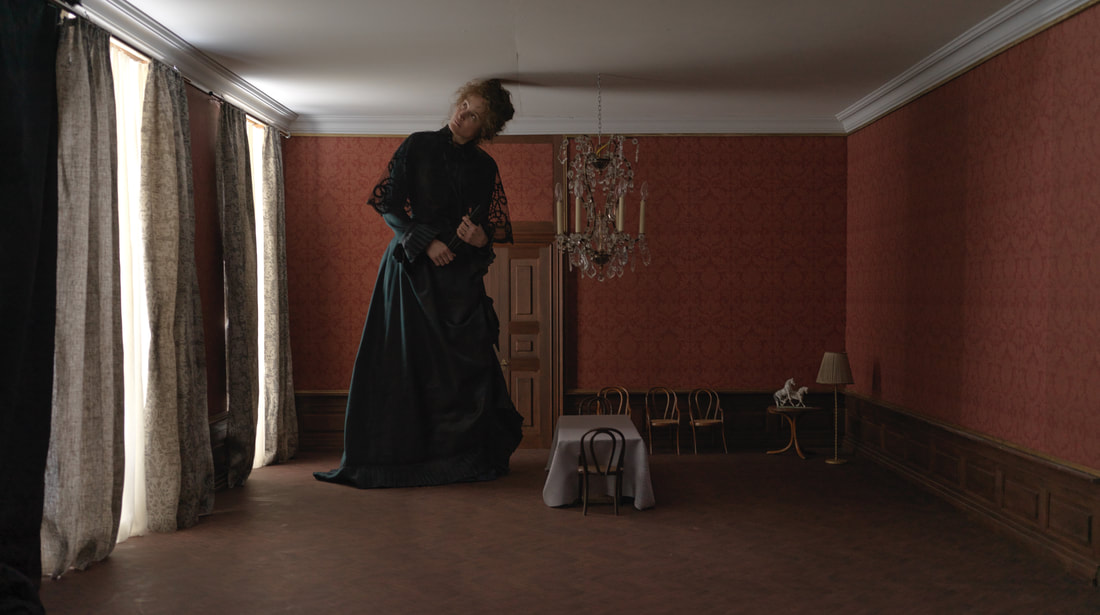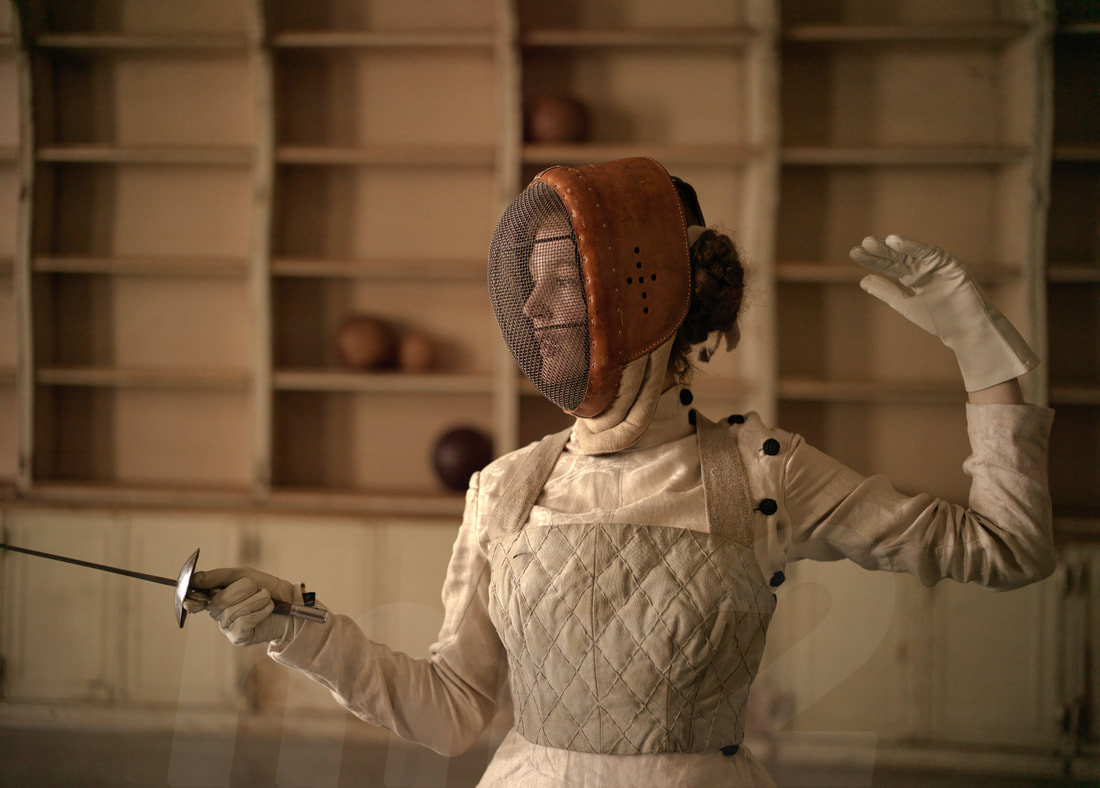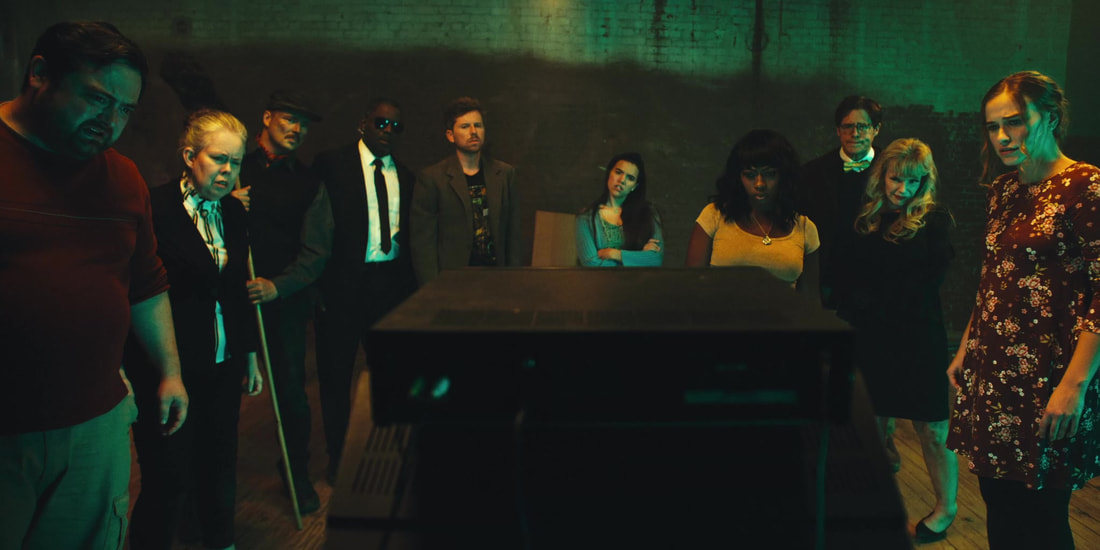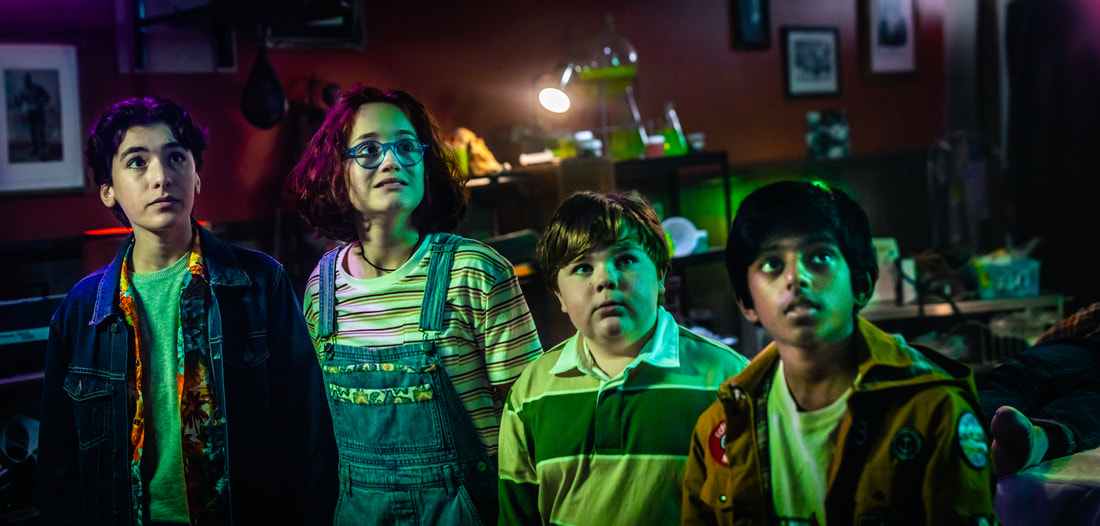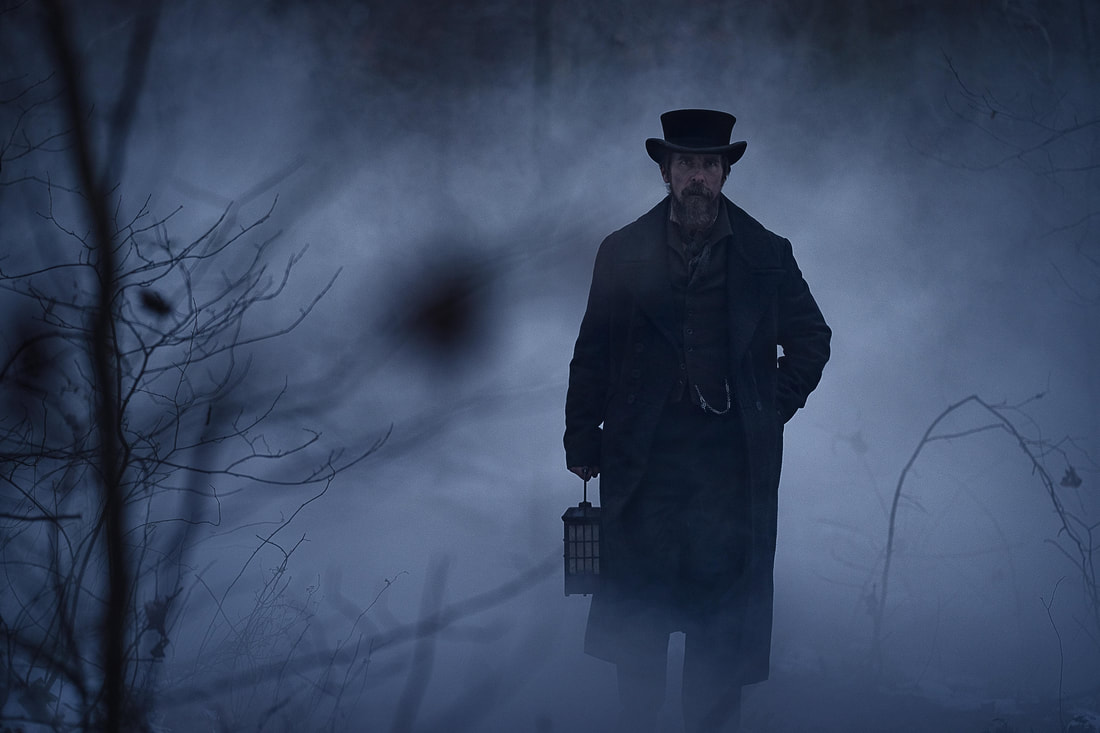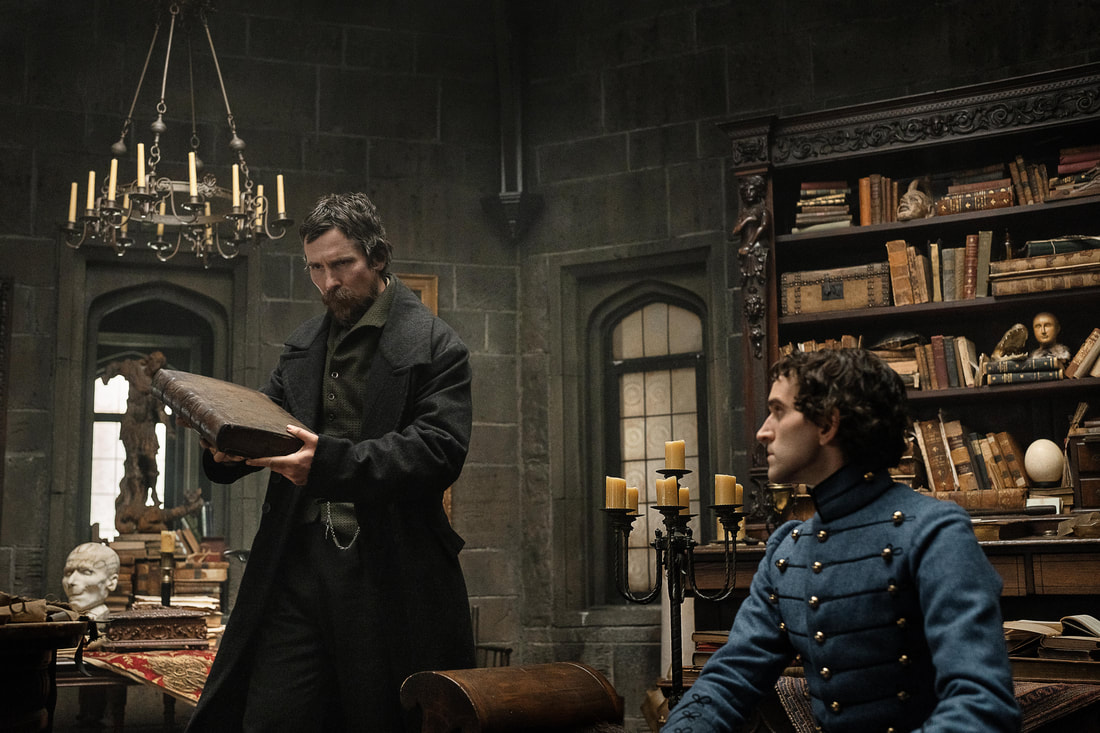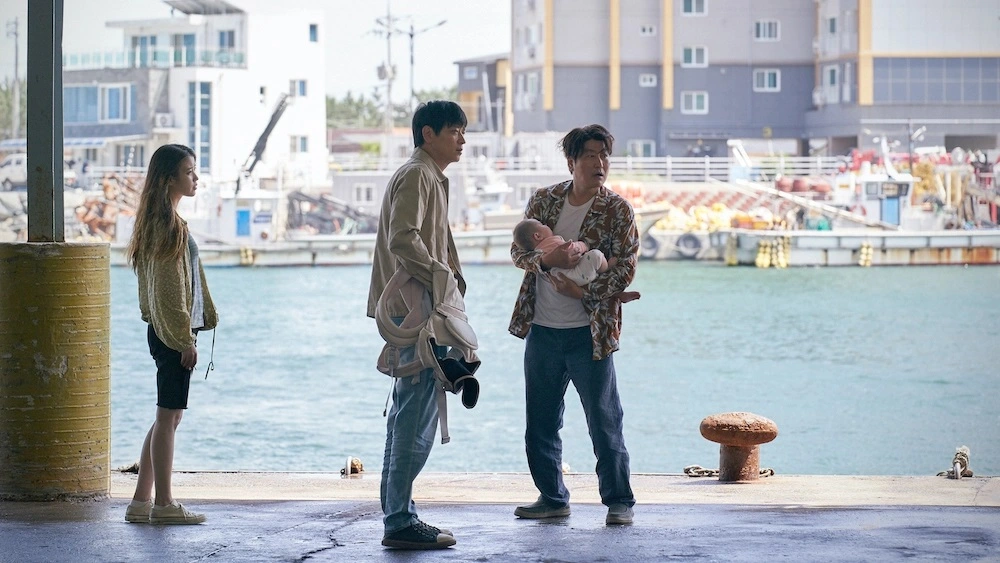|
Review by Sean Boelman
The Norwegian film A Man Called Ove, based on the novel Fredrik Backman, is one of the more acclaimed international comedies in recent memory. Of course, Hollywood had to come along and remake it, but surprisingly, Marc Forster’s A Man Called Otto is a rare remake that manages to capture the magic of the original, largely thanks to a strong performance by Tom Hanks.
The movie follows a depressed old man who is given a refreshed outlook on life when a new family moves in next door, forming an unlikely and unorthodox friendship with him. For those who have seen the Norwegian version of the film, it largely follows the same beats with a few jokes and small plot points being translated to an American audience. That being said, the marketing would have this movie be a heartwarming comedy about a grumpy old man learning to be kind again, and while those aspects are there, it also has a very dark sense of humor to it. Although this element isn’t quite as prevalent of a force as it was in the Norwegian adaptation, it’s something that audiences need to be prepared for or else they will be put off by it. Tom Hanks gives another phenomenal performance here, but one can’t help but feel the Hanks-iness of it all. In other words, Hanks is essentially playing Tom Hanks but grumpy. Still, it works quite well, as there is supposed to be an inexplicably lovable quality to the character, just as Hanks himself is infectiously endearing.
His chemistry with actress Mariana Treviño is fantastic, and Treviño surprisingly holds her own against the veteran actor. It’s refreshing to see a film that, for the most part, doesn’t make the minority character the butt of the joke — although one recurring gag about her character’s poor driving abilities does teeter on the edge of being slightly problematic.
One thing in the remake that is, surprisingly, an improvement over the original, is the use of flashbacks. While the flashbacks were effective in the Norwegian movie, they are much more concise and focused in this version. While these scenes could be seen as tear-jerking, they are effective at eliciting a strong emotional reaction. That said, this version of the film is much weaker on the elements dealing with the theme of immigration. It’s a missed opportunity considering how hot of a topic immigration is in the United States right now, especially since — as it stands — the characters’ ethnicity feels like more of a plot device than a fully-developed aspect of her character. A Man Called Otto sticks to the basics and remembers what made its source material so charming in the first place, while also benefiting from an inspired performance by Tom Hanks. It’s a lovely, charming little movie, and while it wasn’t entirely necessary, it holds up against an original that set a pretty high bar for success. A Man Called Otto hits theaters on December 29. Rating: 4.5/5
0 Comments
Review by Cole Groth Lizzie Gottlieb’s latest documentary, Turn Every Page - The Adventures of Robert Caro and Robert Gottlieb, details her father, legendary literature editor Robert Gottlieb, and his decades-long relationship with the Pulitzer Prize-winning political author Robert Caro. I might not be in the target audience as an 18-year-old college student, but there’s something so fascinating about a relatively niche documentary that celebrates knowledge creation. In the 112-minute runtime, Gottlieb creates a riveting tale of the somewhat fading art of literature. Turn Every Page is thematically split into two separate documentaries. The first part shows Caro’s incredible effort in each of his novels. We follow him as he spends countless hours at a local library and museum, finding information about Lyndon B. Johnson for the latest installment in a currently four-volume biography that he’s been working on for decades. His painstaking work shows the work that goes into making a great piece of literature. The second part has Lizzie following her father as he describes his relationship with Caro. Robert is a fascinating man whose obsession with detail leads to long, nerdy sections about the importance of the semicolon or how a single paragraph could be as important as a single period. It’s a lot of fun to follow these two men who are deeply engaged in their work. While not focusing on their literature, we’re taught various lessons from the people whom Caro’s works have inspired. It’s fascinating to learn that a few hundred fraudulent votes gave Lyndon B. Johnson the win in his senate primary election in 1948 in a rural county in Texas. The history of New York City’s infrastructure is a fascinating piece of history. Lizzie proves herself a well-seasoned documentarian by weaving so much information together to create a satisfying film. Technically, Turn Every Page is very well done. The pacing is strong, with the runtime not feeling a moment too long or too short. The cinematography is excellent, the sound is good, and it’s an all-around professional production. Since these elements have no notable flaws, we can focus on the film’s core: Lizzie’s father and Robert Caro. Anybody with interest in writing would be wise to listen to the words of these incredibly insightful men. There’s hardly a dull moment in the charmingly elaborate explanations of minute literary details.
As a young film fanatic, I love finding films that take me out of my comfort zone and teach me something new. It’s sad that literature isn’t as popular as it used to be. Still, if this generation of writers can be anything like the duo portrayed in Lizzie Gottlieb’s fantastic documentary, it’ll continue as an excellent art form for generations to come. This is a must-watch for film fans and literature enthusiasts everywhere. Turn Every Page: The Adventures of Robert Caro and Robert Gottlieb releases in select theaters on December 30. Rating: 4/5 Review by Dan Skip Allen Anna Kendrick is known for her bright and peppy personality in such films as the Pitch Perfect franchise or Trolls. Earlier in her career, she was in more dramatic films like Up in the Air and The Accountant, and more recently, she starred opposite Blake Lively in Paul Feig's A Simple Favor. Alice, Darling might be the most dramatic work she's done in her career. She puts it all out on the line. There haven't been many films like Alice, Darling. This film takes the romance drama genre in a new direction that I don't think anybody could have predicted. Anna Kendrick gives the rawest and most vulnerable performance of her career as a woman in a toxic relationship. But she doesn't realize it until she goes on a getaway with a couple of her best friends at a secluded house in the woods. This era of the #MeToo movement has brought many stories showing how women are subjected to violence and abuse at the hands of their partners. Sometimes that abuse can be verbal, like belittling them or making them feel bad about their decisions, like what they eat. Alice, Darling might be the most realistic movie about this subject I've ever seen. It makes me sick thinking about it. Anna Kendrick gives one of the most realistic cinematic portrayals of a woman in an abusive relationship. This is a rare occurrence in movies these days. Even though revenge thrillers have been a thing for years, there haven't been many stories dealing with these realistic relationship-type stories. She has to learn about how much strength and courage she has within herself. This movie shows one side of an abusive relationship, but it works both ways. Sometimes women can be a bit overbearing and controlling as well. Only when Kendrick goes to the cabin does she realize she has been a bad friend to her two best friends, played by Wunmi Mosaku and Kaniehtio Horn, because of how her boyfriend treated her. She forgot she had two supportive friends. It's hard sometimes to see beyond your own face when your mind is on such a difficult thing as making an abusive boyfriend or husband happy.
Mary Nighy is the daughter of Bill Nighy, a famous British actor. She has teamed up with the screenwriter Alanna Francis to tell an intimately personal story of a woman's life dealing with verbal and emotional abuse. This is a story only women could tell, and from top to bottom, many women are featured in making this motion picture. I can see how this story/film was a draw for them to work on. Alice, Darling takes the #MeToo movement to the next level. It puts a woman in such emotional turmoil she can't even see who's her friend and who's not. The movie uses such intelligent verbiage that it tries to be very smart in how the words affect the main character. Kendrick, along with the writer and director, put the viewer in an uncomfortable position to watch this woman's emotional journey of verbal abuse and manipulation by her boyfriend. It's not easy to watch, but it's worthwhile. Alice, Darling hits theaters on December 30. Rating: 4/5 Review by Cole Groth 2022 is the year of big performances. From Austin Butler’s bombastic portrayal of the most influential rock star of all time in Baz Luhrmann’s Elvis to Michelle Yeoh’s excellent adventure as an aging Chinese immigrant who can jump across the multiverse in Everything Everywhere All at Once, we’ve seen many actors do their best at their absolute most. In the mix of these big films, it might be easy to overlook Bill Nighy’s soulful portrayal of a dying man looking for a change in his life. With the upcoming Academy Awards nominations in January, you would be unwise to miss one of the year's best performances in Oliver Hermanus’s Living. Set in a post-war 1953 London, Living is an adaptation of Akira Kurosawa’s 1952 film Ikiru. Similar to its predecessor, Hermanus weaves a tale of a bureaucrat who searches for meaning in his life after he’s given a terminal diagnosis. It explores the inefficiency of bloated government organizations and how powerfully our seemingly ordinary interactions with others have a significant impact on the lives of others. Instead of taking place in Japan, this story moves to Britain, which feels like a perfect change for this remake. Nighy’s performance as Williams is almost as devastatingly powerful as the diagnosis he’s given. Williams only has a few months to live, meaning he has to make the most of a life he’s spent without a thirst for something bigger. He subtly delivers every line with so much precision that he feels exactly like the role he’s portraying. His mannerisms are those of an older man who’s grown jaded with his life. It’s refreshingly realistic and profound. Opposite aside him is an incredible Aimee Lou Wood. Since Williams has to make the most out of the rest of his life, he chooses his companionship with a much younger woman with some pep in her step. Wood is excellent for this role because her wide eyes seem like she’s always searching for the best in a person. The two perfectly juxtapose each other and allow for several brilliant scenes of generational knowledge being passed back and forth. For a production without an enormous budget, it’s awe-striking how great the production design is. From the very first frame to the final one, you’re transported into the early ‘50s and feel wholly engrossed in the silent beauty of past generations. The perfect sets and costume design will almost go unnoticed because a certain level of realism (that all films should strive for) is achieved here, making you forget you’re watching a movie. It allows us to focus on each conversation and feel like the fly on the wall for many different people. In addition to the brilliant design of the world, we’re treated to one of the best scores of the year, composed by Emilie Levienaise-Farrouch. The beauty of her piano underscores each scene with a quiet sensitivity. Even without considering the rest of the film, the production alone is worthy of a watch. Kazuo Ishiguro’s adaptation of Kurosawa’s script is splendid. Like Hermanus and Nighy, the writing exercises great restraint to ensure that each moment is as important as the last. Nighy plays a Dickensian character. While he doesn’t go through as much of a transformation as Ebeneezer Scrooge, Ishiguro gives us the satisfaction of watching a man obtain positive growth. The script also fantastically portrays the government’s inefficiency, which feels remarkably prescient in our modern era. The first fifteen minutes show us a group of women trying to install a public playground in their town, only to be shuffled from department to department, being told that each subsequent bureaucrat will be able to help them. Scenes like these are what give this film so much character. When we aren’t being saddled with what could be a tremendously depressing story, we see exciting scenes of the other characters involved in Williams’s life.
Living manages to sport one of the best performances of the year in a year where we’ve seen many excellent actors give all-time best portrayals. Nighy gives it all and is supported by a brilliant team of talented creatives behind him. Living is one of the year’s best films with excellent direction from Oliver Hermanus, beautiful set design, and an excellent script. It deserves all the love it can get into the upcoming awards season. Living is now playing in theaters. Rating: 4.5/5 Review by Tatiana Miranda At first glance, No Bears appears to be one of the several movies to come out of 2022 that focuses on filmmaking, alongside The Fabelmans and Babylon. But No Bears is unique in many ways, mainly regarding the context surrounding the film's making and location. Part documentary and part fiction, No Bears is centered around an Iranian director, "Jafar Panahi," who is portrayed by the real-life director of the film, Jafar Panahi. While the film is heavily fictionalized, Panahi's real-world influences are apparent throughout. Having been banned from filmmaking in 2010 by the Iranian government, Panahi applies this struggle to his film as this character attempts to make a movie in Turkey without being able to leave Iran. Filled with slapstick-style scenes of Panahi trying to video-call his assistant in Turkey as his internet connection continues to go in and out, Panahi is able to blend drama and comedy in order to highlight the surrealist nature of the position he is in. Beyond its humorous moments, No Bears is anxiety-inducing. Panahi's real-life urgency and secretive style of filmmaking are reflected on screen as his character resides near the border of Iran and Turkey, slyly working on his next movie. Through the character's actions, those of the characters within his film, and the real Panahi's experience, the audience watches as each deals with their feelings of being trapped. Panahi, the character, frequents the border and contemplates fleeing to Turkey. The characters in his film, Bakhtiar and Zara, are shown trying to gain passports in order to leave and go to Europe, a storyline which is also portrayed to be inspired by the actors' experiences. Lastly, Panahi, the director, includes his personal restrictions through simple but poignant directorial decisions.
Even the film's title harps back to the overarching subject of borders and what lies beyond them. In a conversation between Panahi and his landlord Ghanbar, they discuss the town's superstitious beliefs about bears that keep people from crossing the border. In response to Panahi's question about the bears, Ghanbar disproves this idea and says a line encapsulating the film's central thesis: "Our fear empowers others. No Bears!" Unlike its Western counterparts telling the history and creativity of filmmaking, No Bears tackles the discussion of the limitations many have to deal with when it comes to censorship and authoritarian governments. Even without the context of Panahi's current imprisonment and many run-ins with the law, No Bears is a defiant representation of Panahi's passion for filmmaking and the realities he has dealt with while trying to hone his craft. No Bears is now playing in theaters. Rating: 3/5 Review by Joseph Fayed Imagine a period piece featuring a protagonist who may or may not feel more like an outsider than they do a member of royalty. Imagine a screenplay that reminds you that women have dealt with the same societal expectations for centuries. Writer-director Marie Kreutzer uses both approaches to tell the story she chooses to tell in Corsage. The film follows Empress Elisabeth of Austria, played by Vicky Krieps, as she turns 40 and deals with her image to both the public and those who know her the best. Elisabeth's marriage is falling apart, she is told she needs to lose weight, and she becomes depressed. Despite the many supportive figures in her life, Elisabeth still struggles with these pressures and constantly searches for a feeling of liberation. The most effective part of the historical fiction drama was its emphasis on multiple aspects of Elisabeth's life. Being told over a year of Elisabeth's life helps the story feel less stagnant. While Elisabeth may have lived an interesting life, one aspect of it being at the center of this film would easily make her character one-dimensional. While that pacing may be unsatisfactory to some viewers, each title card with a different date is like another act beginning, and Elisabeth's 40th year of life comes full circle by the end. Vicky Krieps's performance carries this film. Having held her own acting alongside some great talents in the past, Krieps has fun with her character by making her seem more eccentric. She is not overtly quirky, yet there are moments where her presence feels like it belongs in a dark comedy. Elisabeth is acted as an out-of-place millennial in 19th-century Austria, and here it works.
Many comparisons between this film and Marie Antoinette have been made, but this is a very different film beyond the surface level. Sure, both films feature modern music in their score, but Corsage places more of an emphasis on aging defiantly than acting out of defiance. Now that she is considered "old" by beauty standards, we see Elisabeth as a character with no holds barred against those who judge her social status. Why she chooses to act out is a large part of the story's appeal. Corsage is an ode to nobody despite its historical influences. But it's the characterization of Empress Elisabeth that will have your attention over its historical inaccuracies. Corsage is now playing in theaters. Rating: 3/5 SCARE PACKAGE II: RAD CHAD'S REVENGE -- Fun and Campy Anthology Horror With a Strong Framing Device12/22/2022 Review by Sean Boelman Scare Package II: Rad Chad’s Revenge is the long-awaited sequel to the cult-favorite anthology horror film, and creator Aaron B. Koontz has promised that it will be bigger, better, and funnier. Tailor-made for the Shudder subscriber base, an audience that thrives on meta-commentary and movie references, this is a movie made by horror fans for horror fans. Set after the events of the first movie, this anthology film follows the attendees of the funeral of video store owner Rad Chad as it devolves into something much more sinister. Made up of four segments, each directed by an up-and-coming indie horror filmmaker, this serves as a showcase for some of the most exciting voices in the future of horror. The first segment of the anthology, “Welcome to the ‘90s,” is undoubtedly the most interesting. It’s a bit unfortunate that it had to come out in the same year as another ‘90s-themed anthology horror flick (V/H/S/99), but this parody of slasher tropes offers plenty of satisfying carnage and some witty and insightful laughs. Unfortunately, the second segment, “The Night He Came Back Again! Part VI: The Night She Came Back,” uses the same inspiration — slasher flicks — and is significantly less effective. “Special Edition,” is the odd one out of the bunch — the only one that tries to be genuinely scary, but too messy to work. The finale (if one can even call it that — because the film continues on for another fifteen minutes after the final segment), “We’re So Dead,” pulls its inspiration from several movies. Although it’s pretty entertaining, it feels like more of a setup for a game of Where’s Waldo? of horror references than an actual horror story.
However, what stands out about this film is that the star of the show is not the anthology segments, but the framing device. The connective tissue takes up at least half of the runtime — if not more. And that portion of the movie, a comedic riff on the Saw series, is more fun than anything else the film has to offer. As is the case with the first movie, there is a heavy emphasis on practical effects and gore, and they’re quite impressive. The film’s aesthetic is also very retro and almost grimy, paying homage to the VHS era to which the movie obviously owes so much of its existence. It’s enjoyably campy, which is exactly what an anthology horror film needs to be memorable. Although the segments themselves aren’t anything special, the framing device makes Scare Package II: Rad Chad’s Revenge one of the most successful anthology films in the history of the format. It’s a fun little movie with plenty of laughs and awesome practical effects to satisfy horror fans. Scare Package II: Rad Chad’s Revenge is now streaming on Shudder. Rating: 4/5
Review by Sean Boelman
Based on the novel by Louis Bayard, the horror-tinged mystery The Pale Blue Eye is a passion project for filmmaker Scott Cooper — one that he has been trying to have realized for several years at this point. While the film is far from his strongest, Cooper’s strong craftsmanship allows it to be an immersive viewing experience nevertheless.
The movie follows a world-weary detective hired to investigate the vicious murder of a West Point cadet, enlisting the help of another cadet by the name of Edgar Allan Poe. Interestingly enough, this is the second film this year with this premise — after Shudder’s Raven’s Hollow — but this one feels much less like fanfiction. Ultimately, the biggest weakness of the movie is that the mystery being investigated isn’t all that interesting. The ways in which it integrates grisly murders that, within the film world, “inspired” the works of Poe is intriguing, but the actual meat of the case surrounding it struggles to be as compelling. That said, Scott Cooper is such a master at building atmosphere that it doesn’t matter if the mystery isn’t intriguing. Even if the viewer isn’t hooked by the story itself, they will be drawn in by the cinematography, costuming, and visual effects that create a macabre world for these characters to exist in.
Still, the slow-burn pacing is likely to put off some viewers. And even when the movie does reveal its hand and the mystery is fully unraveled, the payoff doesn’t feel as big as it should. Although a lot happens in the story, none of the events have enough of a consequence to create any legitimate stakes.
Christian Bale is meant to be the hero of the film, playing the gruff detective investigating the murder, and it’s a performance not too dissimilar from many of the others he has delivered before. That’s not to say it’s a bad turn — he’s quite good at playing this archetype — but it definitely feels like watching Christian Bale investigating the crime rather than the character he plays. However, the more interesting performance comes from Harry Melling, who plays Poe as a West Point cadet. Melling shows us a very different side of the poet. Rather than the emo loner or introverted hero that he has been shown as in the past, the movie shows him as a quirky weirdo, and Melling perfectly captures those eccentricities. The Pale Blue Eye is sure to have plenty of detractors citing its slow pacing and inconsequential story. But for those who are a fan of Scott Cooper’s moody, brooding style of horror, this is sure to be an interesting exercise in atmosphere, if nothing else. The Pale Blue Eye hits theaters on December 23 and streams on Netflix beginning January 6. Rating: 4/5 Review by Camden Ferrell Hirokazu Kore-eda is a Japanese filmmaker who has been making movies for decades, even winning a Palme d’Or for 2018’s Shoplifters. His newest movie, Broker, is his first Korean movie and features a cast of acclaimed Korean actors and actresses. This movie had its premiere at the 2022 Cannes Film Festival where it won the Best Actor Award for Song Kang-ho. Like his previous movies, this film is a steady and emotional journey that will often tug at your heartstrings. Sang-hyeon and Dong-soo work together on an illegal operation where they will steal babies from a church’s baby box and sell them to prospective parents. However, So-young is a yong woman who leaves her baby one night and returns shortly after. She learns of this whole operation and sets out on a journey with them to find the baby new parents. This is a very interesting premise that involves elements that I’ve never really seen talked about in movies. Kore-eda’s writing is as reflective as always. He has an interesting way of taking multiple characters and letting their personalities and desires slowly unfold over the course of the movie, and this movie is no exception. It is quite subtle at developing its characters even when the dialogue can be a little too straightforward. There are some really interesting ideas and unique perspectives on common themes that allow this to stand out from an emotional standpoint. The acting throughout this movie is also quite impressive. Led by the reliable Song Kang-ho, this cast of characters is as endearing as they are relatable. They’re all flawed individuals, but they bring such humanity to the story. Song is fantastic as Sang-hyeon, and Gang Dong-won does a great job co-starring as Sang-hyeon’s right hand man. Lee Ji-Eun also gives a troubled yet captivating performance as So-young, elegantly capturing the complex emotions that come with giving your child away.
Despite everything working in its favor, including the gorgeous cinematography, the movie still is far from perfect. This is mostly due to the different storylines that the film juggles which can sometimes be unbalanced and throw off the pacing of the final product. Its main storyline is fantastic and is firing on all cylinders, but the other elements that it shares screen time with don’t always pack the same emotional punch or plot progression. Broker is a great film with great performances. Kore-eda’s first Korean film is captivating and incredibly emotional. It has his signature emotion and steady pace, and his ensemble plays extremely well off each other. Fans of Shoplifters are going to love his newest movie and the themes he explores quite well in the movie’s run time. Broker is in theaters December 26. Rating: 4/5 Review by Sean Boelman Although most documentary awards tend to go to flashier documentaries made by higher-profile filmmakers, there are often hidden gems that go under the radar. Trevor Frost and Melissa Lesh’s Wildcat is one such movie, telling an extraordinarily compelling story in more ways than one. The film follows a young soldier struggling with PTSD and depression as he finds a second chance when he gets the opportunity to foster an orphaned baby ocelot in the Amazon rainforest. It’s a story that almost seems too specific to be compelling, but it is also those stories that are unknown that are the most unexpectedly riveting. For much of the movie’s opening, it seems as if it is going to be something really conventional, but at a certain point, it becomes clear that there is much more to this story than it initially let on. The overall arc is a tad on the predictable side, but it is thoroughly moving and inspiring despite this. Of course, the film doesn’t struggle to develop its animalian subjects because it’s hard not to be in awe of the adorable nature of the big cats. However, more surprising is the fact that it is able to effectively and independently develop its human subjects. The movie does not look down on or pity its subject. In addition to the obvious environmentalist themes, the film also explores mental health and PTSD in a much more empathetic way than most movies are able to. The film lingers on the humanistic elements of his story which blend together with the “boy and his pet” elements wonderfully.
There are some scenes in which it feels like the movie is pulling at the audience’s heartstrings, and to an extent, it is. However, it is extremely effective at what it does, getting an essentially guaranteed emotional reaction out of the viewer. It earns every single ounce of emotion that it gets. Something else that helps this film stand out is that it is not glossy like a majority of nature documentaries. Much of the footage feels very raw, as if it is footage recorded for a wildlife live stream. The result is that it feels much more grounded, which is particularly important during the more emotional sequences. Wildcat is enormously effective, both as a nature documentary and a movie about rebuilding oneself in a time of pain. It has a profound emotional effect — both expected and unexpected — making it one of the best documentaries of the year. Wildcat is now playing in theaters and streams on Prime Video beginning December 30. Rating: 4.5/5 |
Archives
April 2024
Authors
All
|
|
|
disappointment media
Dedicated to unique and diverse perspectives on cinema! |

